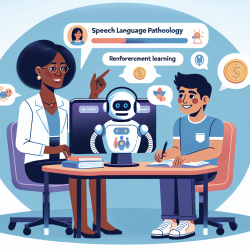Revolutionizing Occupational Therapy Education with E-Learning Modules
In the ever-evolving field of occupational therapy, practitioners are constantly seeking ways to enhance their clinical reasoning skills. A recent pilot study titled Exploring the Influence of an E-Learning Sensory Processing-Based Module for Graduate Level Occupational Therapy Students on Clinical Reasoning: A Pilot Study sheds light on the potential of e-learning modules to improve clinical reasoning in occupational therapy students.
The Study: A Closer Look
This study explored the effectiveness of online, module-based instructional reusable learning objects (RLOs) targeted at first-year Master of Occupational Therapy (MOT) students. The focus was on the A SECRET framework, a mnemonic for Attention, Sensation, Emotional Regulation, Culture/Context/Condition, Relationships, Environment, and Task. This framework aids in addressing sensory-related behaviors in children with sensory processing disorders (SPD).
The study involved eight MOT students who completed a series of nine RLOs designed to enhance their understanding and application of the A SECRET framework. Their ability to discern appropriate strategies was assessed through a selected-response assessment, with participants achieving an average score of 68%.
Key Findings and Implications
The study's findings suggest that the e-learning module had a positive impact on students' clinical reasoning skills. Despite the novelty of the instruction and assessment, participants scored close to the targeted threshold of 70%. This indicates that RLOs can be an effective tool in teaching complex reasoning processes like A SECRET.
Interestingly, students excelled in the 'Attention' and 'Relationships' categories, suggesting these RLOs were particularly effective. However, they struggled with the 'Environment' category, highlighting areas for further refinement in instructional design.
Recommendations for Practitioners
- Consider integrating RLOs into your professional development to enhance clinical reasoning skills.
- Explore the A SECRET framework as a tool for addressing sensory processing challenges in your practice.
- Engage in further research to refine and expand the use of e-learning modules in occupational therapy education.
Encouraging Further Research
This pilot study opens the door for further research into the use of e-learning modules in occupational therapy education. Future studies could explore larger sample sizes, control groups, and diverse instructional contexts to validate and expand upon these findings.
For practitioners, this research underscores the importance of staying informed about innovative educational tools and approaches that can enhance clinical practice and outcomes for children.
To read the original research paper, please follow this link: Exploring the Influence of an E-Learning Sensory Processing-Based Module for Graduate Level Occupational Therapy Students on Clinical Reasoning: A Pilot Study.










